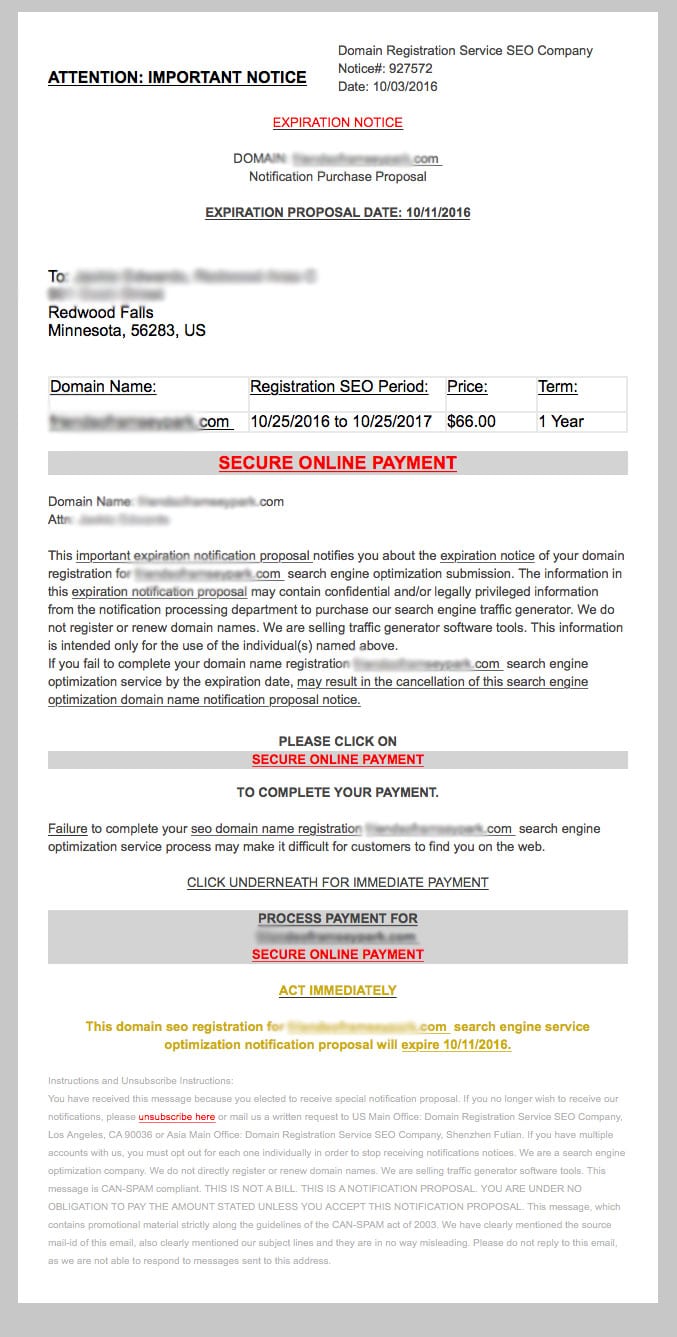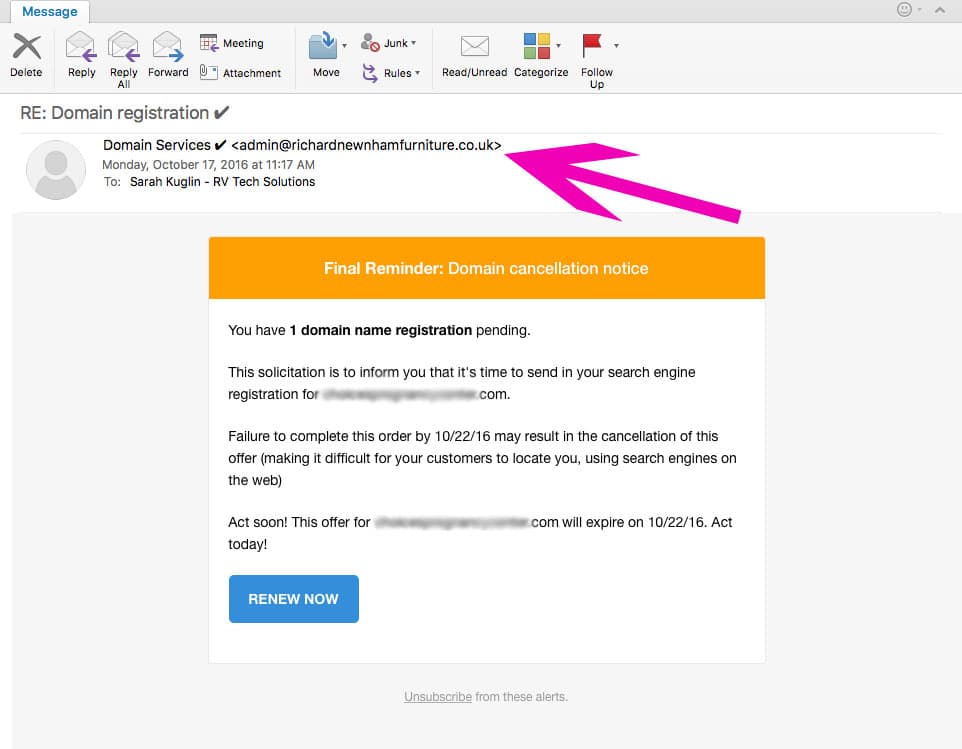How To Detect A Fraudulent Domain Renewal Notice
If you receive a letter or email that your domain name renewal is due, be sure to take a close look at the details, as you may have received a domain name renewal scam.
If your domain name registration information is public, your email and information pertaining to your domain name registration is “out there” for others to see. You can avoid this by paying for domain privacy protection.


Domain Renewal Red Flags
A key indicator that the letter may be a hoax is the cost of the domain renewal being much higher than your normal domain name renewal fee (it should be between $10 - $20 annually).
These scams use your actual registered domain name and attempt to trick you into migrating to their services from your current registrar. The letters and emails make it appear that they are the legit, current registrar, when in fact they are not. Do not pay for these, as you will start the process of transferring your domain to their service. It’s always important to read the fine print!
They also commonly use phrases such as, “This is an invitation to register, disregard this letter if you are not the proprietor or if you do not wish to register.”
If you receive any of these emails or letters, do not pay! Contact us or your actual domain registrar for all renewals.
NOTE: we recommend that you DO NOT click on any links within the email as well. The links normally track the opening and take you to a page you don't want to visit.
Other renewal letters make it look like you need to renew the domain name and try to add an additional service to the fee. If you read the fine print—usually in very light gray somewhere within the letter—you will see their promoted service appear as if it is a legit renewal of your domain.
Here is an example of fine print from a letter “domain registration service SEO company”:
Domain Registration Service SEO Company
Notice#: 927572DOMAIN: xxxx.com
Notification Purchase Proposal
EXPIRATION PROPOSAL DATE: 10/11/2016We do not register or renew domain names. We are selling traffic generator software tools. This information is intended only for the use of the individual(s) named above.
If you fail to complete your domain name registration xxxx.com search engine optimization service by the expiration date, may result in the cancellation of this search engine optimization domain name notification proposal notice.This message is CAN-SPAM compliant. THIS IS NOT A BILL. THIS IS A NOTIFICATION PROPOSAL. YOU ARE UNDER NO OBLIGATION TO PAY THE AMOUNT STATED UNLESS YOU ACCEPT THIS NOTIFICATION PROPOSAL. This message, which contains promotional material strictly along the guidelines of the CAN-SPAM act of 2003. We have clearly mentioned the source mail-id of this email, also clearly mentioned our subject lines and they are in no way misleading. Please do not reply to this email, as we are not able to respond to messages sent to this address.
The Rise of Fraudulent Domain Renewal Notices
These scams are becoming harder and harder to recognize, as they continue to look more and more legit. If you’re not sure where your domain name is registered and if it should be up for renewal, you can always check with us at Redwood Valley Technical Solutions.
There are other tools available to search where a domain is registered as well as when the registration renewal date is up. Try the GoDaddy WHOIS Database to look up domain name registration information. You could also use this website to find out when a registered domain name is up for renewal, in case the current registrar does not renew. Keep in mind that it’s important to keep your domain name renewed, as you wouldn’t want someone to get your domain name if you forgot to renew.

Use a reliable source to find information about your domain name and renewal dates.
Use GoDaddy’s WHOIS lookup to find out the people or organizations behind different domain names or IP addresses. WHOIS records gives you organized contact data for domains, including registrant, administrative, and technical contact information. It also provides you with the name of the registrar (such as GoDaddy, Network Solutions, etc.), the status of the domain, and important dates (e.g., the domain creation date and expiration date).
Still not sure if you can trust the source?
Our advice is to always make sure you know where your domain name is registered. If you receive a notice, read the fine print. If you’re not sure what to do, don’t hesitate to contact us!


